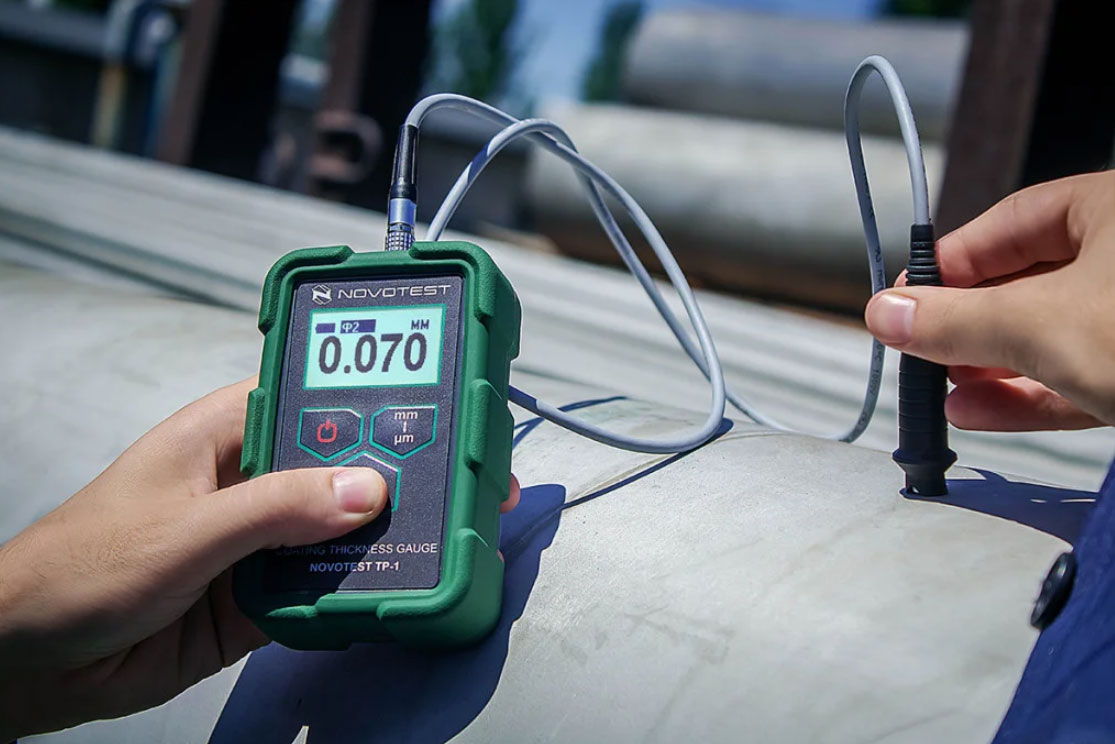Coating Thickness Test
Coating thickness testing is crucial across various industries, including manufacturing, automotive, and aerospace. It involves measuring the thickness of coatings applied to metal substrates to ensure they meet standards for corrosion resistance, durability, and appearance. Common methods include:
- Magnetic Induction
- X-Ray Fluorescence (XRF)
- Optical Microscopy

Coating thickness testing is a critical quality control measure in various industries, ensuring that coatings applied to metal substrates meet specific standards and requirements. Here’s an overview of why this testing is crucial in industries such as manufacturing, automobile, aerospace, and more:
Corrosion Resistance
- Coatings are applied to metal surfaces to protect against corrosion. The effectiveness of this protection largely depends on the coating's thickness, which helps shield the metal from moisture, chemicals, and environmental conditions.
Durability
- The thickness of a coating is crucial for ensuring the durability of coated products. A sufficient coating thickness allows the material to endure wear, abrasion, and environmental stresses, which is vital for products exposed to harsh conditions.
Aesthetic Appeal:
- For industries like automotive and aerospace, the visual quality of the coated surface is essential. Consistent and appropriate coating thickness ensures that the final product meets desired aesthetic standards.
Regulatory Compliance:
- Adhering to industry regulations and standards for coating thickness is often a legal requirement. Compliance ensures that products meet safety, environmental, and performance criteria.
Functional Performance:
- Coatings often provide functional benefits such as electrical insulation, thermal protection, or anti-fouling properties. The thickness of the coating affects its ability to perform these functions effectively.
Cost Efficiency:
- Optimal coating thickness is essential for cost efficiency. Excessive thickness can lead to waste and increased costs, while insufficient thickness may reduce protective properties. Accurate thickness testing ensures a balance between cost and performance.
Coating Thickness Testing Techniques:
- Eddy Current Testing: Measures changes in electrical conductivity caused by the coating’s magnetic field.
Magnetic Induction: Assesses changes in the magnetic field due to coating thickness.
Ultrasonic Thickness Measurement: Utilizes sound waves to determine the thickness of coatings.
